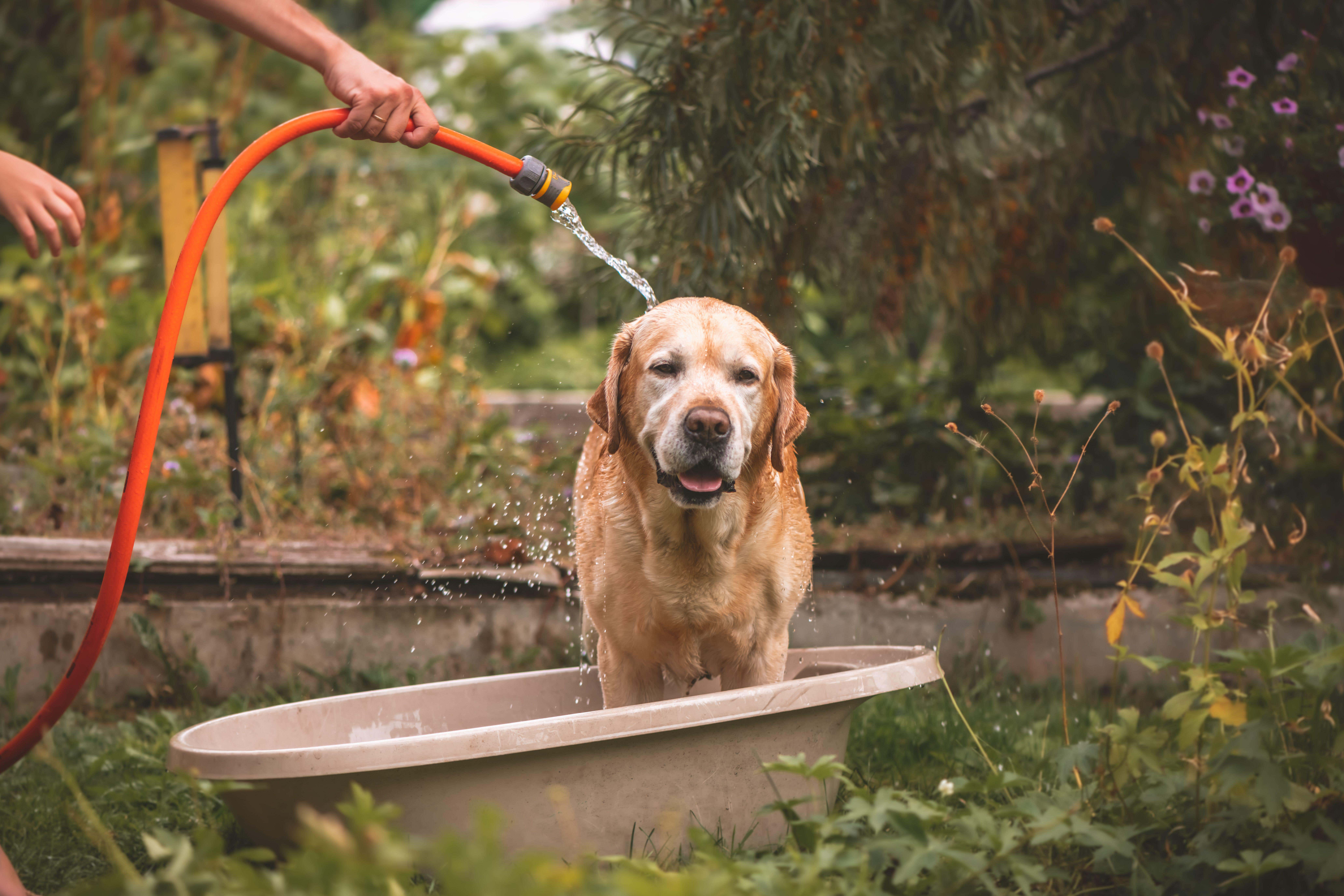How to take care of pets in the heat
If the pavement is too hot for your bare feet, it’s too hot for theirs. By Imy Brighty-Potts.

With temperatures rising, it’s hard to keep ourselves cool – never mind our four-legged friends. With fur coats on, it can’t be easy being a pet in a heatwave.
According to PETA (People for the Ethical Treatment of Animals), in the USA alone, 70 dogs (and other companion animals) have died from heat-related causes since 2022 – with many expected to be unreported.
“Heat can have a profound effect on our pets. From heatstroke to skin damage – such as paw pad burns, sunburn, and possible skin cancers with prolonged excessive sun exposure – our pets have similar risks to us humans,” says veterinary surgeon Lily Richards, advisor to Trusted Housesitters.
So, how can we keep them safe and cool?
Getting out and about
Your dog will still need exercise in hot weather, but overheating is a worry.
“Overheating is a particular problem for certain breeds of dogs; those that are brachycephalic [short nosed], those that are naturally very active, have a thick coat, and older pets or younger animals. Heatstroke is an unfortunately common medical emergency seen in vet clinics,” says Richards.
“Avoid exercising your pets at the hottest parts of the day, aiming for early mornings or late evenings, when the temperatures are more manageable.”Keeping hydrated
“Ensuring your pet has constant access to water is essential in hot weather. You could consider offering iced treats – freezing their usual treats in treat puzzles, for example. Ensuring your pet stays out of the midday sun and in the cool will also help prevent excessive dehydration,” says Richards.
Sun protection
You may not think animals get sunburnt like us.
“But, sunburn is a risk to our pets, those that have less hair cover, or white features – such as white ear tips or noses – are particularly at risk,” explains Richards.
“White cats who are avid sunbathers are commonly seen with skin damage, due to excessive sun exposure without protection. Pet sunblock is a must to help those prone to sunburn, as prolonged exposure can lead to blistering, or even the development of skin cancers. Don’t be tempted to use human sunblock, however, as some contain ingredients that are toxic to pets.”
There are many animal-friendly options on the market instead – try Petkin sunscreen or Be:Loved sun protection balm.
Things to avoid
“Be careful to not leave pets alone with cooling mats, as if the mats are damaged and the contents ingested, your pet could become quite unwell,” explains Richards.
“Avoid unsupervised paddling pools and bathing, as just with children, these are a great, fun way to keep cool – but accidents can happen and safety could be a concern,” she says.
While the majority of us would never leave a dog in a car on a hot day, or even take them for a long walk in high temperatures, Esme Wheeler from the RSPCA says it’s still a risk to take pets on short walks. “By taking them to fields and beaches with little or no shade, the truth is, walking dogs in hot weather can be a silent killer,” she says.
“The message remains very simple – never leave a dog in a hot car because ‘not long’ is too long, and when it comes to walks, ‘if in doubt, don’t go out’.”
Keeping cool indoors
“Keep the house temperature cool by closing curtains and opening windows. The addition of fans or cooling mats will help keep your pet cool in the house, too” Richards says.
“For small furries like rodents, guinea pigs or rabbits, consider supplying frozen water bottles for lying next to, which will help them cool off if they’re feeling the heat.”
Signs that something is wrong
“Excessive panting, loss of appetite, vomiting, diarrhoea and lethargy are signs that your pet has been exposed to the sun excessively, and may be suffering from heatstroke.” Richards stresses. If you’re concerned your pet is feeling unwell, call your vet for immediate advice.
Bookmark popover
Removed from bookmarks